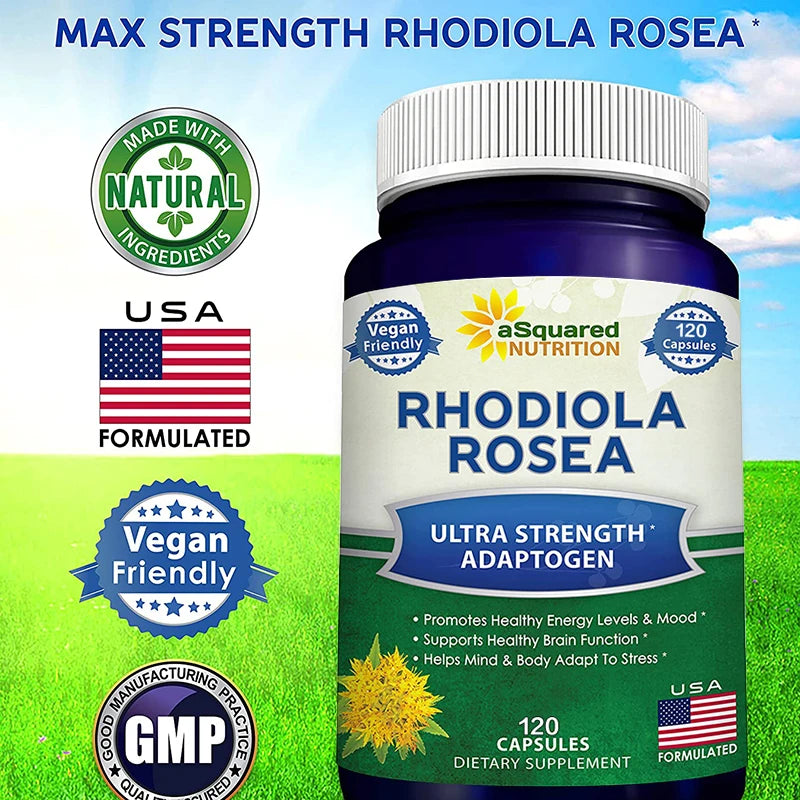Exploring Astaxanthin: Nature's Most Potent Antioxidant
Introduction: Astaxanthin's History
In the realm of natural compounds with potent health benefits, astaxanthin shines as one of the most remarkable and versatile antioxidants. This vibrant red pigment, belonging to the carotenoid family, has captured the attention of researchers and health enthusiasts alike. From its intriguing history of discovery to its presence in a wide array of living organisms and its myriad health benefits for human consumption, astaxanthin's story is one of scientific fascination and promising potential.
Unveiling the Discovery of Astaxanthin
Astaxanthin's journey into the scientific spotlight began with the meticulous work of scientists in the 20th century. The compound was first isolated and characterized from the flesh of the common salmon, Salmo salar, in the early 1930s. Its striking red coloration piqued the curiosity of researchers, leading to its identification as a member of the carotenoid family, known for their vibrant hues and antioxidant properties.
One of the pioneers in astaxanthin research was Dr. Basil Weedon, an Australian chemist. He contributed significantly to the understanding of astaxanthin's structure and properties, paving the way for further investigations into its potential benefits.
An interesting story that has come down generations of descendants in Hawaii, was that scientists were intrigued why Hawaiian natives dive down in the water and come up with this algae in their hands. They would then proceed with rubbing the algae on their faces. When asked for the purpose, they simply responded that it protects their skin. This knowledge had been passed down generations to these natives and they continue the practice.

Astaxanthin's Ubiquitous Presence in Nature
Astaxanthin's existence isn't confined to a single species or habitat; rather, it's found in a diverse range of living organisms across the planet. This carotenoid pigment is notably responsible for the vivid red and pink hues observed in various aquatic organisms, including shrimp, crab, lobster, and the aforementioned salmon.
Microalgae are at the heart of the astaxanthin biosynthesis pathway, serving as the primary producers of this compound. Krill, a type of zooplankton, consumes these microalgae, transferring the astaxanthin up the marine food chain. Predatory fish such as salmon accumulate astaxanthin by feeding on krill, while crustaceans acquire it through their diet of marine organisms rich in the pigment.
The Science Behind Astaxanthin's Benefits
Astaxanthin has benefits for vision, skin, heart and other organs. It is more recently being used to help with indigestion as it helps protect the inner layer of the stomach. Due to it's anti-inflammatory properties, Astaxanthin has by far the most wide ranging benefits of any other nutritional supplement.
1. Potent Antioxidant Properties:
2. Cellular Health and Inflammation:
3. Skin Health and UV Protection:
4. Eye Health:
5. Exercise Performance and Recovery:
6. Heart Health:
Astaxanthin's Journey to Consumer Wellness
The scientific community's growing interest in astaxanthin's potential health benefits has spurred its incorporation into dietary supplements, functional foods, and skincare products. As awareness of this antioxidant grows, consumers are increasingly seeking ways to harness its advantages.
In the realm of nutritional supplements, astaxanthin is available in various forms, including soft gel, capsules, tablets, and even powders. These supplements are often marketed to promote joint health, skin vitality, eye protection, and overall antioxidant support. The dosage can vary based on individual needs and health goals.
Incorporating astaxanthin-rich foods into one's diet is another strategy to reap its benefits. Seafood lovers can enjoy shrimp, crab, and salmon to obtain a natural dose of this powerful carotenoid. Additionally, microalgae-based supplements and superfoods are emerging as sources of astaxanthin for vegetarians and vegans. Although consuming a sufficient amount of Astaxanthin from seafood to reap the benefits of this powerful antioxidant is difficult. This is why nutritional supplementation of Astaxanthin is recommended. You can find this essential antioxidant in our MindSense1 Nootropic Brain Supplement. To find our more about other ingredients in MindSense1 read this article to learn more.

Conclusion: Adding Astaxanthin as part of our regular diet
Astaxanthin's captivating journey from its discovery in the vibrant hues of aquatic life to its emergence as a potent antioxidant with an array of health benefits showcases the wonders of scientific exploration. Its ability to combat oxidative stress, bolster cellular health, enhance skin vitality, and contribute to various other wellness aspects makes it a promising natural compound for human consumption. As research continues to unveil the intricacies of astaxanthin's potential, the doors to enhanced health and vitality stand wide open, inviting us to explore the depths of this remarkable antioxidant.
As always, consult your healthcare professional before starting any supplementation regimen. Embrace the power of your mind, and may your journey to cognitive brilliance be filled with joy, clarity, and boundless achievement!





Dejar un comentario